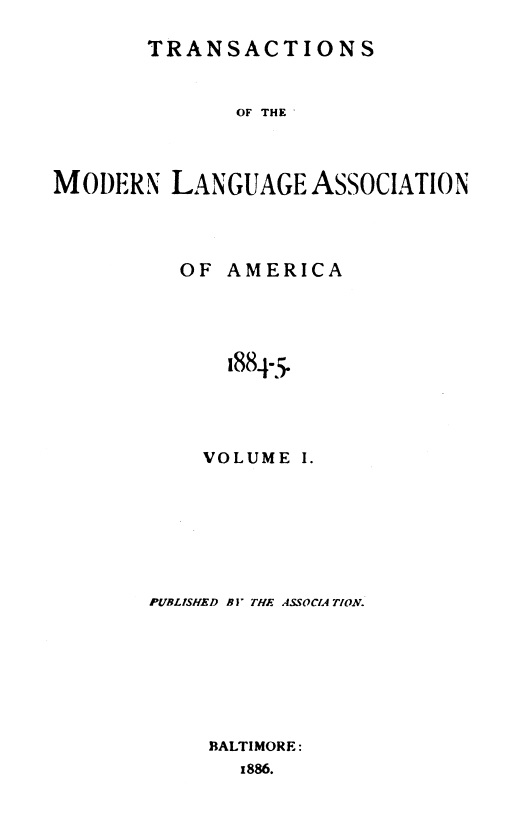Article contents
The College Course in English Literature, how it may be Improved
Published online by Cambridge University Press: 11 February 2021
Extract
The possibility of bettering the present curriculum in English literature will depend in great measure upon the proportion of time allowed to it. So long as the classics and mathematics retain for themselves the lion's share of time and interest, the hopes of our professors of literature will never become unduly exalted. If I may express myself with thorough frankness, the customary quota of English literature, say less than two hours per week for less than two years, is so insufficient that I cannot look upon it as capable of improvement. The study will remain perforce hurried and superficial. Now the course that I have in mind is one of two full hours (better three) throughout three entire years. It is the course which has been required since 1880 for the B. L. degree in the University of Cincinnati, viz., three years, three hours a week. The classical students are now (beginning with 1884) compelled to take two of the three years, and the Scientifics one year. Perhaps this last requirement will be hereafter raised to two years.
- Type
- Research Article
- Information
- Transactions of the Modern Language Association of America , Volume 1: Transactions 1884-1885 , 1885 , pp. 84 - 95
- Copyright
- Copyright © Modern Language Association of America, 1885
References
1 I do not wish to be understood as arguing in general against the utility of training in Rhetoric and Composition. In fact, such training seems to me an indispensable part of the school-curriculum. The above strictures are aimed solely at Rhetoric and Composition, as they are often taught in College. In my experience, college-students have a positive dislike of such drill, while they are almost invariably attracted to literature proper. It seems to me that Rhetoric, if taught at all in College, should be taught by the professor of Philosophy. It should come after the instruction in literature, should be treated in a vary liberal spirit, in fact, as a national mode of envisager the subject, and especially should the instruction be of a kind to contrast ancient methods and tastes with modern, English with continental. It will be perceived that all this is very different from recitation upon Tropes, Introduction, and Arguments and from the writing of Themes.
2 Perhaps Scott will answer. No one, to my knowledge, has called attention to the double nature of Scott's prose style. In temper and in personal sympathies, he is quite in accord with Wordsworth and with the Romanic movement. On the other hand, there is in his prose style a marked formalism at times, which savors strongly of the Dryden—Johnson period. This is not surprising, when we remember that Scott was engaged for years in editing Dryden and Swift. At any rate, Scott will make a tolerable prelude to Lander, De Quincey, and—at a longer interval — Carlyle.
- 1
- Cited by


